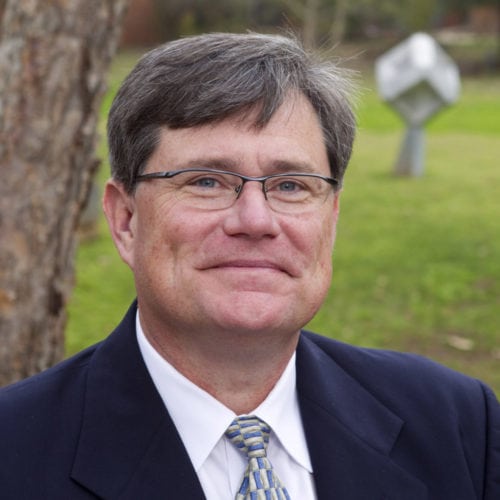Welcome from the Director
The Savannah River Ecology Lab (SREL) began with a grant from the US Atomic Energy Commission to Dr. Eugene Odum to fund him and some of his graduate students to evaluate the baseline ecological conditions of what is now the Department of Energy’s Savannah River Site (SRS). From this modest beginning, SREL evolved over the decades, focusing on the ecological effects of radionuclides in the environment, the thermal effects of the release of cooling water from nuclear reactors on ecosystem processes, and finally to the effects of contaminants generated by weapons production activities on the biotic and abiotic resources of the SRS and its surrounding communities. Today, faculty, staff, and students at SREL study a wide diversity of topics encompassing wildlife and fisheries ecology, forest and plant ecology, biogeochemistry, genetics and genomics, conservation biology, environmental stewardship, and related disciplines both on the SRS and around the globe.
The SREL works closely with the Department of Energy under a series of 5-year cooperative agreements to serve as an independent evaluator of the ecological effects of DOE’s missions on the SRS and to help understand how these missions affect the SRS ecosystems as well as how they may affect the health and well-being of the human communities that surround the site. As a unit of the Office of Research at UGA, SREL faculty, staff, and students conduct extensive research, education, and outreach activities focused on using cutting-edge technologies to solve complex environmental problems, to train the next generation of ecologists, and to inform the general public about environmental issues on the SRS. The SREL currently employs 19 faculty affiliated with the Warnell School of Forestry and Natural Resources, the Odum School of Ecology, the Franklin College of Arts and Sciences, and the College of Veterinary Medicine. These faculty serve as advisors to over 75 graduate students and teach various courses both on the main UGA campus and in an experiential context on the SRS. Over 190 faculty, staff, and students work at SREL annually, and the SREL outreach program reaches over 50,000 members of the public in the communities surrounding the SRS each year.
Please explore our website and become familiar with our research, education, and outreach programs. If we can answer any additional questions or help you in any way, please contact me.
Welcome.
Director and Professor Gene Rhodes

